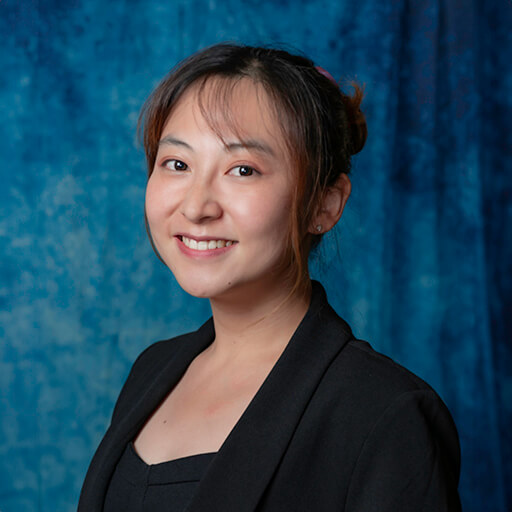Effects of TGF-Beta on Tenon's Capsule Fibroblasts
About the Research Project
Program
Award Type
Standard
Award Amount
$48,000
Active Dates
April 01, 1996 - March 31, 1998
Grant ID
G1996406
Summary
Primary open-angle glaucoma is the most common form of glaucomas (90% of all glaucomas) in the United States. It is a silent thief of sight, causing vision loss without pain or other symptoms until the very latest stage. One of the major risk factors in the disease process is the elevated pressure within the eyeball (intraocular pressure, IOP) which causes degeneration of cells of the retina that are responsible for transmitting light to the brain. Inside human eyes, there is a biologic fluid called aqueous humor that is circulating in the front part of the eye. It is constantly produced by intraocular tissues and drained out of the eye by venous system. Under normal condition, the production and drainage of aqueous humor are in dynamic balance, thus maintaining the pressure within the eye at a steady state. Fluctuation either in aqueous humor production or in its drainage may cause variations in IOP. In glaucoma patients, decreased drainage of the fluid out of the eye due to blockade is almost the exclusive cause for raised intraocular pressure. Therefore, the major treatment objective at the present time is to lower the pressure by medication or laser surgery, and surgical procedures (trabeculectomy or glaucoma filtration surgery) that create a channel to bypass the blockade of draining pathway. Unlike other surgical procedures in which wound closure is desirable, successful trabeculectomy depends on the incomplete healing of the fistula that is created surgically. Proliferation of Tenon’s capsule fibroblasts, cells that are normally present at surgical site, as well as production and deposition of matrix proteins including collagen and fibronectin after the procedure are primarily responsible for the failure of glaucoma filtration surgery. Hence, medications such as anti-tumor drugs and steroids that inhibit wound-healing process are used to decrease fibrosis. However, these drugs have limited effectiveness and often cause significant side effects and toxicities to the eye. Transforming growth factor-ßs (TGF-ßs) are a group of active biologic chemicals. Previous experimental studies have shown that these growth factors are involved in various stages of the wound healing process of dermal tissue and are implicated in a variety of fibroproliferative diseases such as liver cirrhosis and pulmonary fibrosis. Based on these findings, we hypothesize that TGF-ßs are becoming available in increased amounts after glaucoma filtration surgery, and that they promote fibroblast growth and protein production, which contribute to scar formation and the failure of the surgery. ifying the fibrosis-promoting TGF-ßs with specific antibodies will increase the success rate of trabeculectomy to maintain the patency of the fistula and normalization of intraocular pressure. The specific aims of our proposed research project are designed to study the production of TGF- ßs by Tenon’s capsule fibroblasts in vitro and after mechanical wounding, the effects of TGF-ßs on fibroblast proliferation and matrix protein production, as well as the actions of TGF-ß antibodies on wound healing response in vitro. To accomplish these aims, we will employ human tissue extracts, cultured cells, and an cell wounding model. By using various modern molecular biology and biochemistry techniques, we will quantitate the synthesis of TGF-ßs, analyze their effects on fibrosis, and investigate the wound healing rate after TGF-ß antibody treatment. We anticipate that Tenon’s capsule fibroblasts produce increased amounts of TGF-ßs after wounding, which enhance cell proliferation and matrix protein accumulation. Antibodies that neutralize these TGF-ßs will decrease fibrosis. Our long-term goals are to define the exact role of TGF-ßs in wounding healing response after trabeculectomy. This is a currently unexplored field that can open up the prospect for the development of specific neutralizing antibodies as a novel adjunctive therapy for the prevention of excess fibrosis and failure of glaucoma filtration surgery in human patients.
Grants
Related Grants
National Glaucoma Research
The Role of Microtubules in Glaucomatous Schlemm’s Canal Mechanobiology
Active Dates
July 01, 2024 - June 30, 2026

Principal Investigator
Haiyan Li, PhD
National Glaucoma Research
Pressure-Induced Axon Damage and Its Link to Glaucoma-Related Vision Loss
Active Dates
July 01, 2024 - June 30, 2026

Principal Investigator
Bingrui Wang, PhD
National Glaucoma Research
Why Certain Retina Ganglion Cells Stay Strong in Glaucoma
Active Dates
July 01, 2024 - June 30, 2026

Principal Investigator
Mengya Zhao, PhD



